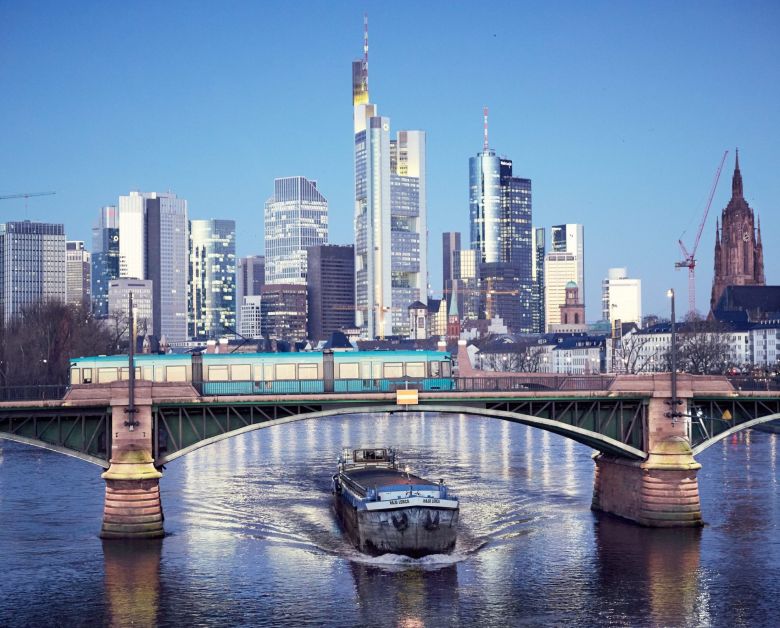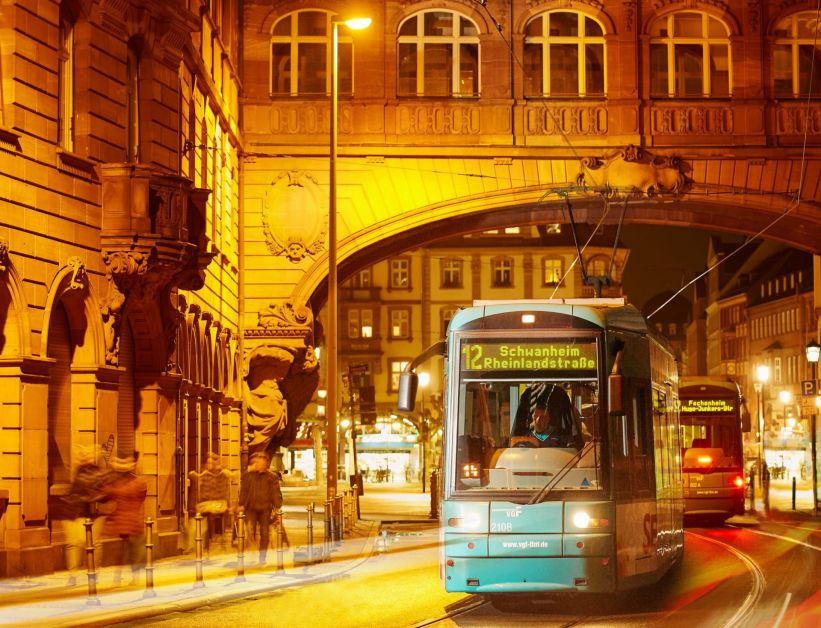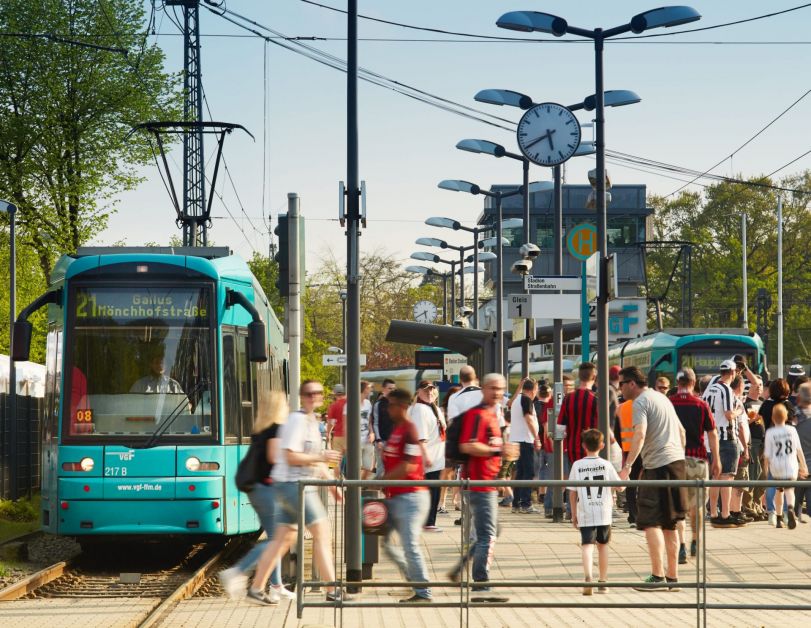
A new normal state or back to normal?
Für die UITP, die Union Internationale des Transports Public, den internationalen Verband für öffentliches Verkehrswesen, hat die Unternehmenskommunikation der VGF einen englischsprachigen Beitrag verfaßt, der einen Überblick über das Unternehmen und die Herausforderungen seit Ausbruch der Corona-Pandemie gibt.
In June, Verkehrsgesellschaft Frankfurt am Main (VGF) returned to a regular timetable. The last restriction was removed when the overnight service was resumed; other VGF services like ticket offices – closed for weeks – reopened as well.
Does that mean everything is back to normal?

Not at all. The crisis is not over yet; the dangers of and risks from a worldwide disease did not just vanish overnight, although more and more of Germany’s Corona restrictions have become obsolete in the last few weeks. The situation remains unclear and the foundation for management decisions concerning staff as well as passengers remains insecure. At the same time public transport is still a main focus for passengers, the media and politics, unfortunately not just in a positive way. Maintaining a distance of 1.5 metres from other people is impossible on a tram or a bus and the wearing of masks on public transport vehicles is still dictated for all passengers. Some call it the ‘new normal’, but wearing masks when riding a tram shall never be ‘normal’.
VGF is the public transport company for Frankfurt am Main, running underground and tram lines in a city of about 760,000 inhabitants. If the greater Rhein-Main area is included, the number of people living in that agglomeration can easily reach 2.5 million. It is no surprise that more than 350,000 commuters travel to Frankfurt and back home every day – the highest number of any German city. More than 202 million passengers used a VGF service in 2019, a number that will never be reached in 2020, as use – as an expected result of the nationwide lockdown – decreased in spring by 80 to 90%, even though the number of passengers is now on the upturn again. This decrease will have an effect on the company’s financial situation. At the current time one can only estimate how much money VGF is going to lose. Financial support from the federal government – as announced on 3 June – will be tremendous and vital at the same time.

But back to March: the crisis hit VGF and other companies without warning or any time for preparation. As a result, many decisions had to be made without any prior experience from similar situations. Emergency plans, which prepared for well-known and more or less foreseeable cases, turned out to be inappropriate. But very soon it became clear that public transport was considered to be part of ‘critical infrastructure’, as it was called in Germany. ‘Critical’ meant essential. Public transport had to continue regardless of the situation. As a result, VGF had to keep all nine underground lines and ten tram lines in operation despite the fact that the number of passengers had decreased dramatically. At the same time VGF also had to operate longer trains to increase capacity, so passengers could feel more or less comfortable and secure when using public transport facilities, an aspect that became more and more important to our customers and that had to be taken into consideration.
Beginning in March, VGF – just like comparable companies – started to reduce its underground and tram service. At the same time it intensified the cleaning and sanitation of its vehicles, focussing on the driver’s cabin and crucial parts of the passenger compartments. Maintenance of car stock and infrastructure had to go on because it was clear right from the start that every task that remained undone due to Corona was going to be part of an enormous bow wave the company would have to push in the weeks and months to come. Both extensive and transparent communication was necessary to inform passengers and staff on a regular basis. Changing facts and the changing judgements of the authorities – sometimes inconsistent – had to be taken into consideration.

In April, VGF started a campaign called Danke, dass Ihr da seid! (Thanks for being here!) in order to thank its staff, but also to show its gratitude and respect for their work in public. ‘When trains and buses are considered to be essential for our society and a lot of people depend on exactly this service, so is the work of our entire staff,’ says VGF’s CEO Michael Rüffer. ‘That is why it was very important for VGF’s management to show respect and to say thank you publicly.’
The situation was also difficult within the company itself due to a diverse workforce and a lot of jobs with completely different requirements. Employees from VGF’s administration department were able to do their work from home as soon as they were fully equipped with laptops and mobile phones, things that had to be supplied immediately. But you cannot drive an underground train from home, you cannot turn your living room into a control centre and you cannot maintain vehicles while sitting at your kitchen table. ‘As a result, some of the management’s decisions did not have the same effect on every employee,’ says Rüffer. ‘Initially this does not sound important, but in the long run this leads to some kind of dissatisfaction and displeasure. It was very important to stop that development from going on for too long.’ At the same time it became clear how motivated VGF staff members were, regardless of where their jobs were located – working from home, in the workshop, in the control centre or in a driver’s cab. ‘Being recognised as an essential part of an important task inspired a lot of our employees,’ adds Rüffer.

What will the near future look like? Are VGF and other companies prepared for a second wave of infection? Will it come at all? All this is difficult to answer. VGF’s management has reviewed the past few weeks: what was okay? Which decisions turned out to be fine? What did not work too well? And what was learnt? What has to be done if the situation returns to being a crisis?
The fact is that any kind of forecast will be difficult. ‘We have learnt a lot during the last few weeks’, says Rüffer. ‘But we are still the same type of company. And that means we still need individual solutions for the individual problems we face.’ And some things cannot be changed, especially the diversity of a company like VGF.
But most importantly, public transport is a vital and unreplaceable part of public life. And companies like VGF will be up to the challenge.




Keine Kommentare